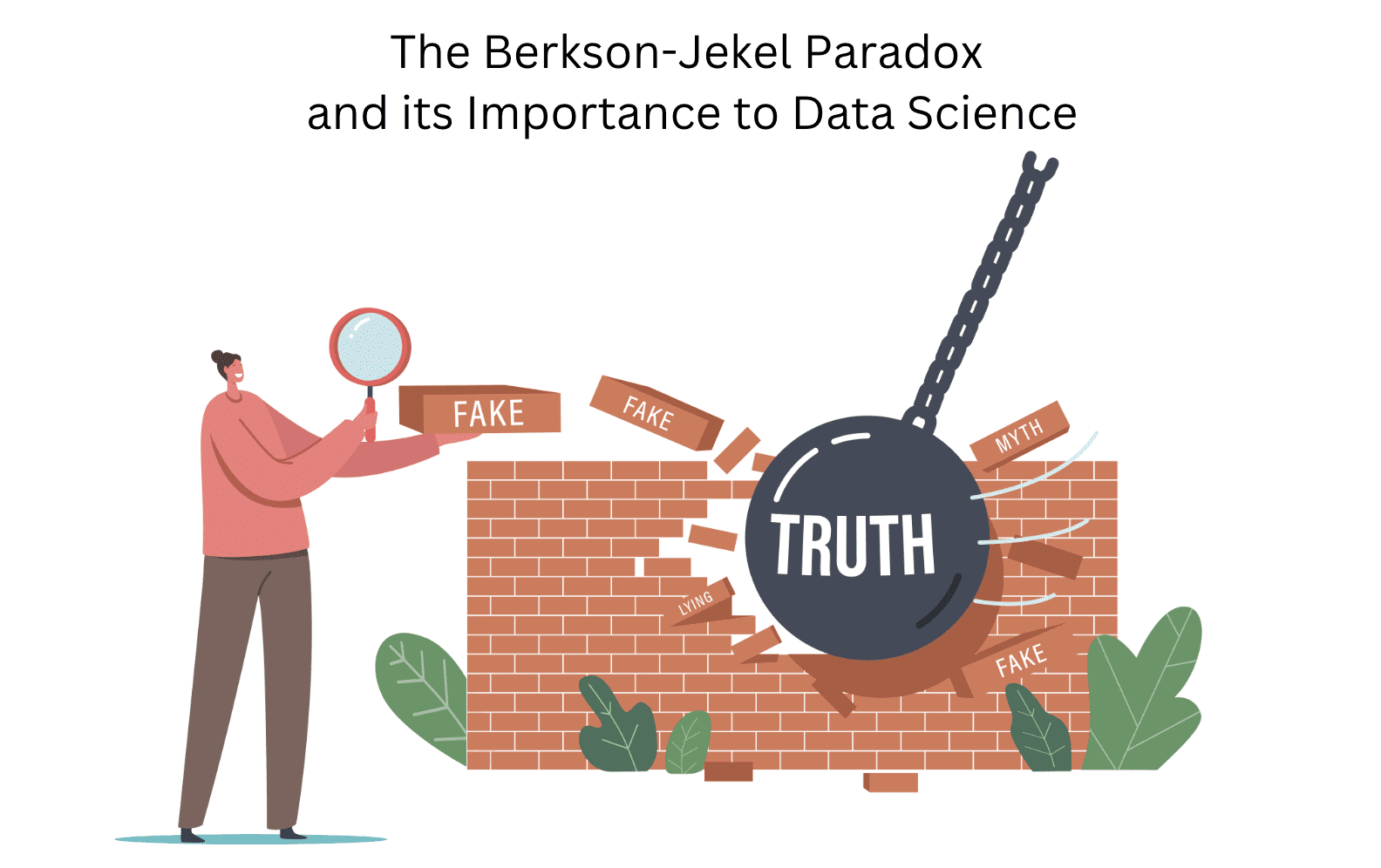[ad_1]

Picture by Creator
In case you are a Knowledge Scientist or an aspiring one, you’ll know the significance of statistics within the sector. Statistics assist Knowledge Scientists to gather, analyze, and interpret the info by figuring out patterns and developments, to then make future predictions.
A statistical paradox is when a statistical outcome contradicts expectations. It may be very tough to pinpoint the precise trigger, as it’s laborious to grasp the info with out the usage of additional strategies. Nevertheless, they’re an vital factor for Knowledge Scientists because it offers them a lead on what may probably be inflicting the deceptive outcomes.
Here’s a listing of statistical paradoxes related to information science:
- Simpson’s Paradox
- Berkson’s Paradox
- The False Optimistic Paradox
- The Accuracy Paradox
- The Learnability-Godel Paradox
On this article, we will likely be specializing in the Berkson-Jekel paradox and its relevance to Knowledge Science.
Berkson-Jekel paradox is when two variables are correlated in information, nonetheless, when the info is grouped or subsetted, the correlation isn’t recognized. To place it in layman’s phrases, the correlation is completely different in several subgroups of the info.
The Berkson-Jekel paradox is called after the primary statisticians who described the paradox, Joseph Berkson and John Jekel. The invention of the Berkson-Jekel paradox is when the 2 statisticians had been learning the correlation between smoking and lung most cancers. Throughout their research, they discovered a correlation between individuals who had been hospitalized for pneumonia and lung most cancers, compared to the overall inhabitants. Nevertheless, they performed additional analysis which confirmed that the correlation was resulting from people who smoke being hospitalized for pneumonia extra, compared to individuals who didn’t smoke.
Why Does This Occur?
Based mostly on the statistician’s first analysis on the Berkson-Jekel paradox, it’s possible you’ll say that extra analysis was required to determine the precise reasoning behind the correlation. Nevertheless, there are additionally different explanation why the Berkson-Jekel paradox happens.
- Hidden Variables: Datasets can comprise hidden variables which can be affecting the outcomes. Due to this fact, when there’s a research between the correlation of two variables, information scientists and researchers might haven’t thought of all of the potential elements.
- Pattern Bias: the pattern of the info is probably not consultant of the inhabitants, which may result in deceptive correlations.
- Correlation vs Causality: An vital factor to recollect in information science is that correlation doesn’t imply causality. Two variables might correlate, however it doesn’t imply that one causes the opposite.
Statistical reasoning is essential in Knowledge Science, and the primary challenge is coping with deceptive outcomes. As a knowledge scientist, you need to guarantee that you’re producing correct outcomes that can be utilized within the decision-making course of and for future predictions. Making incorrect predictions or deceptive outcomes is the very last thing on the playing cards.
How you can Keep away from the Berkson-Jekel Paradox
There are a couple of strategies that you need to use to keep away from the Berkson-Jekel Paradox:
Use Statistical Strategies to Management Hidden Variables
- Statistical modeling: You should utilize statistical modeling to higher perceive the connection between two or extra variables. This manner, you may determine hidden variables that could possibly be doubtlessly affecting the outcome.
- Randomized managed trials: That is when contributors are randomly assigned to a remedy group or a management group. This may also help information scientists management hidden variables that could be affecting the outcomes of their research.
- Combining outcomes: You possibly can mix a number of research outcomes that will help you get a greater understanding of the research. This manner, information scientists have a greater understanding and management of hidden variables in every research.
Number of Knowledge Sources
In case you are coping with deceptive outcomes as a result of pattern information not being consultant of the inhabitants, an answer could be to make use of information from a wide range of sources. This may show you how to to get a extra consultant pattern of the inhabitants, analysis extra on the variables, and get a greater understanding.
Deceptive outputs can maintain an organization again. Due to this fact, when working with information, information professionals want to grasp the constraints of the info they’re working with, completely different variables and the connection between them, and the way to scale back deceptive outcomes from taking place.
If you want to know extra about Simpson’s Paradox, have a learn of this: Simpson’s Paradox and its Implications in Data Science
If you want to know extra in regards to the different statistical paradoxes, have a learn of this: 5 Statistical Paradoxes Data Scientists Should Know
Nisha Arya is a Knowledge Scientist, Freelance Technical Author and Group Supervisor at KDnuggets. She is especially taken with offering Knowledge Science profession recommendation or tutorials and idea based mostly information round Knowledge Science. She additionally needs to discover the alternative ways Synthetic Intelligence is/can profit the longevity of human life. A eager learner, in search of to broaden her tech information and writing abilities, while serving to information others.
[ad_2]
Source link



